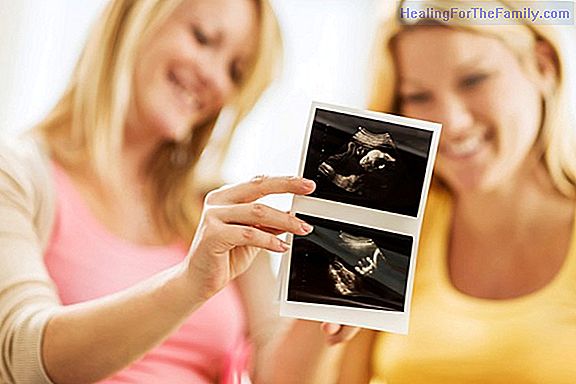Medical tests and analyzes in pregnancy
Throughout the different pregnancy trimesters, the gynecologist will recommend you to perform several medical tests, mainly blood and urine tests to assess the mother's condition and rule out possible complications in the pregnancy . They will also perform a cytology at the beginning of pregnancy an
Throughout the different pregnancy trimesters, the gynecologist will recommend you to perform several medical tests, mainly blood and urine tests to assess the mother's condition and rule out possible complications in the pregnancy. They will also perform a cytology at the beginning of pregnancy and an exudate at the end of it.
The gynecologist will ask for an analysis for each trimester of pregnancy. They will obtain a sample of blood from the pregnant woman and this analytical test will result in aCBC needed to know if the platelets are at the right levelsor if there may be anemia. These are the main tests and medical tests in pregnancy.
Medical tests and analyzes in pregnancy by trimesters

It is also important during the first trimester of pregnancy to detect the blood group and know if it is positive or negative. In case of having a negative Rh, a special follow-up will be necessary.
The blood test at the beginning of pregnancy also determines if the woman is immune to toxoplasmosis. If it is not, it is recommended not to have contact with cats, not to take raw or undercooked foods and to carry out the correct hygiene with handling and food intake. The presence of Hepatitis, HIV or syphilis will also appear in this analysis.
In the second trimester of pregnancy, the O'Sullivan Test or glucose test is performed. Pregnant women also know it as the sugar test or the curve. It consists in carrying out a blood test for the woman and then in the oral administration of a very sweet syrup with an amount of glucose. At the time of taking it, another blood test is performed and it is verified how the body has responded to this contribution of sugar. This analysis could result in gestational diabetes, a disease very common in some moms that require a more thorough monitoring by the gynecologist.
Urinalysis during pregnancy
A urinalysis or urine culture will be performed in each trimester of pregnancy. You have to take the urine in the morning with your mother on an empty stomach. The analytic tries to study the urine of the pregnant woman for a few days and check whether or not bacteria grow in her. It is about checking if there are bacteria or the amount of proteins present.
Cytologies in pregnancy
In the first trimester of pregnancy, the pregnant woman will be taken a sample of cells of the cervix, a fundamental test to determine if there is cervical cancer or if there are cells that indicate that it could develop disease. To perform it, the midwife or gynecologist will insert a speculum to observe the cervix and then take a sample with a swab or small brush. The test is not painful but it is annoying. After cytology, there may be slight bleeding. Exuted at the end of pregnancy In the last trimester of pregnancy, around week 36 or 37 of pregnancy, the doctor will perform a vaginal-rectal exudate, to take samples of the vagina and rectum with a small swab. The intention is to rule out the presence of group B streptococcus, a bacterium that is not harmful to the pregnant woman but to the baby who could be infected when crossing the birth canal. In case of being a carrier of streptococcus to a woman
you will be given antibiotic by vein during delivery
to prevent infection to the baby.












